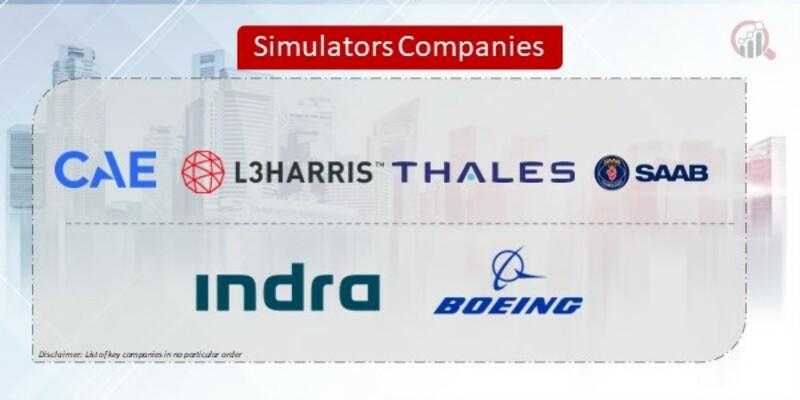Germany Simulators Market
The German simulator market is a dynamic and evolving sector, characterized by a diverse array of applications across various industries. As technology advances, the demand for sophisticated simulation systems in Germany continues to grow, driven by their crucial role in training, research, and development.
The simulator market in Germany encompasses a wide range of industries, including aerospace, defense, automotive, healthcare, and entertainment. These simulators vary from flight and driving simulators to medical and virtual reality (VR) training systems. The market's growth is primarily fueled by the need for enhanced safety, efficiency, and cost-effectiveness in training and operational procedures.
Key Drivers of Growth
- Technological Advancements: Continuous innovation in technology, such as VR, augmented reality (AR), and artificial intelligence (AI), has significantly improved the realism and effectiveness of simulators. These advancements have made simulation-based training more immersive and effective, thereby boosting market growth.
- Increased Focus on Safety: In industries such as aerospace and automotive, safety is paramount. Simulators offer a risk-free environment for training and testing, allowing operators to experience and respond to real-world scenarios without any danger. This focus on safety is a major driver for the adoption of simulators.
- Cost-Effectiveness: Training using real equipment or in live environments can be expensive and logistically challenging. Simulators provide a cost-effective alternative by allowing repetitive training without the wear and tear on actual equipment. This economic advantage is particularly significant in sectors like aviation and defense.
- Regulatory Requirements: In many sectors, regulatory bodies mandate the use of simulators for training and certification. For instance, the European Union Aviation Safety Agency (EASA) requires the use of flight simulators for pilot training and certification. Such regulations ensure a steady demand for simulators.
Industry-Specific Insights
- Aerospace and Defense: Germany's aerospace and defense sector is a significant consumer of simulators. Flight simulators for pilot training, mission rehearsal, and aircraft maintenance are extensively used. The country’s robust aerospace industry, coupled with its strategic defense initiatives, drives the demand for advanced simulation technologies.
- Automotive Industry: The German automotive industry, renowned for its innovation and quality, utilizes simulators for vehicle design, driver training, and testing. Driving simulators help in developing and testing new automotive technologies, such as autonomous driving systems, in a controlled environment.
- Healthcare: In the healthcare sector, medical simulators are used for training medical professionals. These simulators provide realistic patient scenarios, enabling practitioners to hone their skills without risking patient safety. Germany’s focus on high-quality healthcare education has led to increased adoption of medical simulators.
- Entertainment and Education: The entertainment industry in Germany, particularly gaming and VR experiences, has embraced simulators to offer immersive experiences. Educational institutions also use simulators for training in various fields, from engineering to emergency response.
Market Challenges
Despite the numerous growth drivers, the German simulator market faces certain challenges:
- High Initial Costs: The development and deployment of advanced simulators involve significant initial investment. This can be a barrier for smaller organizations or institutions with limited budgets.
- Technical Complexity: The integration and maintenance of sophisticated simulation systems require specialized skills and knowledge. This technical complexity can be a hindrance for widespread adoption.
- Rapid Technological Changes: The fast pace of technological advancements means that simulators can quickly become outdated. Keeping up with the latest technology requires continuous investment and updates.
Future Prospects
The future of the German simulator market looks promising, with several trends poised to shape its growth:
- AI and Machine Learning: The integration of AI and machine learning into simulators is expected to enhance their capabilities. These technologies can enable more personalized and adaptive training experiences.
- Expansion into New Sectors: While traditional sectors like aerospace and automotive will continue to dominate, simulators are likely to find applications in new areas such as renewable energy, smart cities, and advanced manufacturing.
- Increased Collaboration: Collaborations between industry players, academic institutions, and government bodies can drive innovation and development in the simulator market. Such partnerships can lead to the creation of more advanced and effective simulation systems.
- Sustainability: As sustainability becomes a global priority, simulators can play a crucial role in developing and testing sustainable technologies and practices, particularly in industries like automotive and energy.
Conclusion
The German simulator market is a vibrant and growing sector, driven by technological advancements and the need for effective training solutions across various industries. While challenges such as high initial costs and technical complexity exist, the future prospects of the market are bright, with trends like AI integration and sustainability paving the way for continued growth and innovation. As Germany continues to prioritize safety, efficiency, and technological excellence, the simulator market is set to thrive and expand in the coming years.
About US
Market Research Future (MRFR) is a global market research company that takes pride in its services, offering a complete and accurate analysis with regard to diverse markets and consumers worldwide. Market Research Future has the distinguished objective of providing the optimal quality research and granular research to clients. Our market research studies by products, services, technologies, applications, end users, and market players for global, regional, and country level market segments, enable our clients to see more, know more, and do more, which help answer your most important questions.
Contact US
Market Research Future (part of Wantstats Research and Media Private Limited),
99 Hudson Street,5Th Floor New York 10013, United States of America
Sales: +1 628 258 0071 (US) +44 2035 002 764 (UK)

